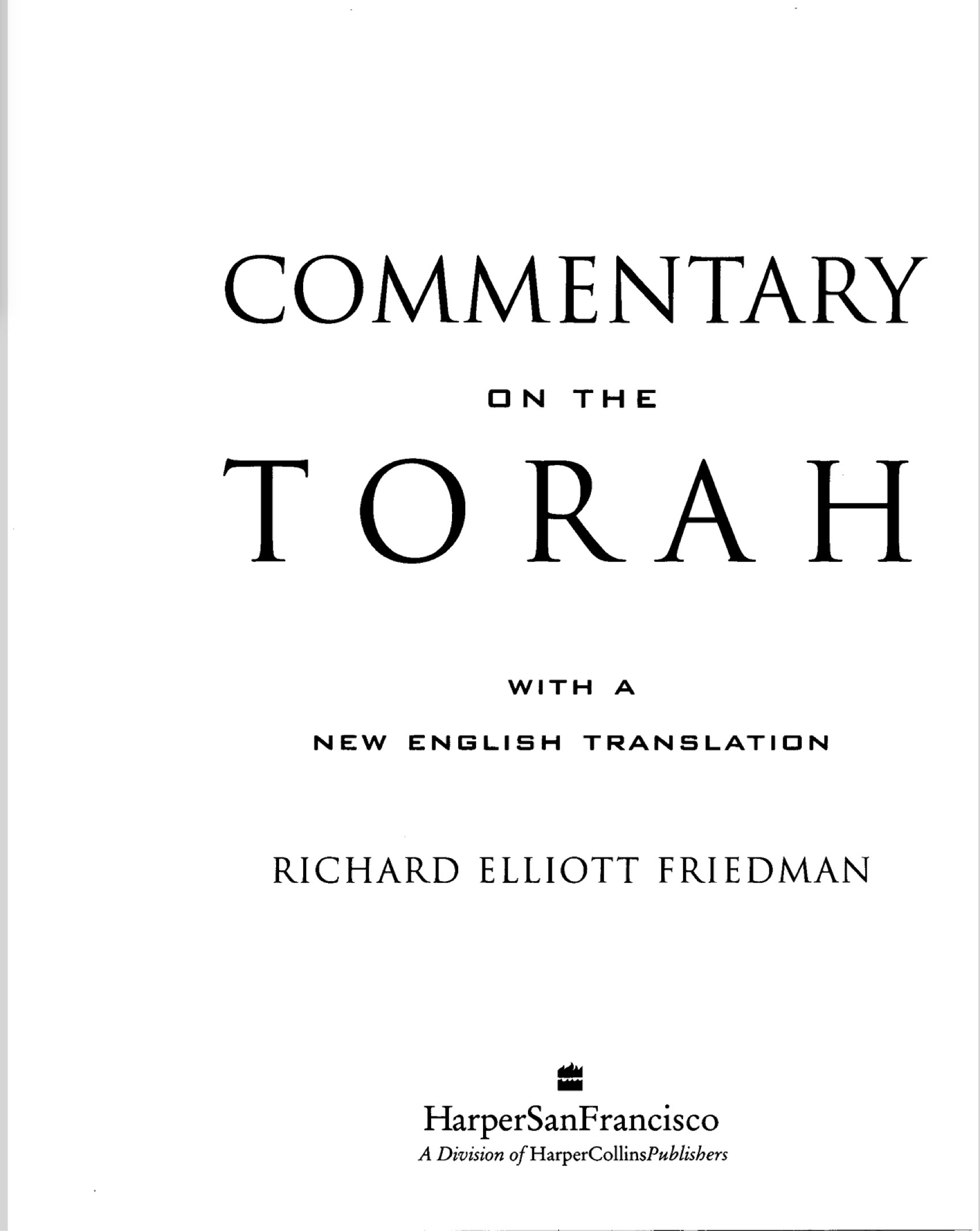COMMENTARY ON THE TORAH
Summary of Commentary on the Torah by Richard Elliott Friedman
Richard Elliott Friedman’s Commentary on the Torah provides a fresh English translation of the Pentateuch along with a critical and literary analysis. The book integrates traditional Jewish commentary with modern biblical scholarship, aiming to make the Torah accessible to both lay readers and scholars.
Key Features of the Commentary
1. A New English Translation
• Friedman presents a clear and modern translation of the Torah while maintaining fidelity to the original Hebrew.
• The translation avoids overly formal or archaic language, making the text more relatable.
2. Integration of Classical and Modern Scholarship
• Engages with traditional Jewish commentators like Rashi, Ibn Ezra, and Ramban.
• Incorporates historical-critical scholarship, archaeology, and linguistic studies to deepen understanding.
• Uses comparative analysis with ancient Near Eastern texts and biblical manuscripts such as the Dead Sea Scrolls.
3. Emphasis on Literary Structure and Meaning
• Highlights the Torah’s narrative flow, connections, and thematic unity.
• Addresses textual variations and interpretations while explaining their theological implications.
• Demonstrates how biblical stories are interconnected, from creation to covenant.
4. Historical and Theological Insights
• Explores the evolution of biblical texts, their authorship, and historical contexts.
• Discusses God’s role, human agency, and moral lessons embedded in the Torah.
• Analyzes the impact of Jewish tradition and monotheism on biblical interpretation.
5. Critical Approach to Interpretation
• Challenges rigid dogmatic readings by encouraging a thoughtful and questioning approach to the text.
• Examines theological paradoxes and historical inconsistencies in the Torah.
• Seeks to balance traditional religious beliefs with academic biblical studies.
Conclusion
Friedman’s Commentary on the Torah is a significant scholarly work that bridges traditional Jewish exegesis and modern critical analysis. It is suitable for anyone interested in deepening their understanding of the Torah, whether from a religious, historical, or literary perspective. The book provides a fresh, thought-provoking approach to reading the foundational text of Judaism.
